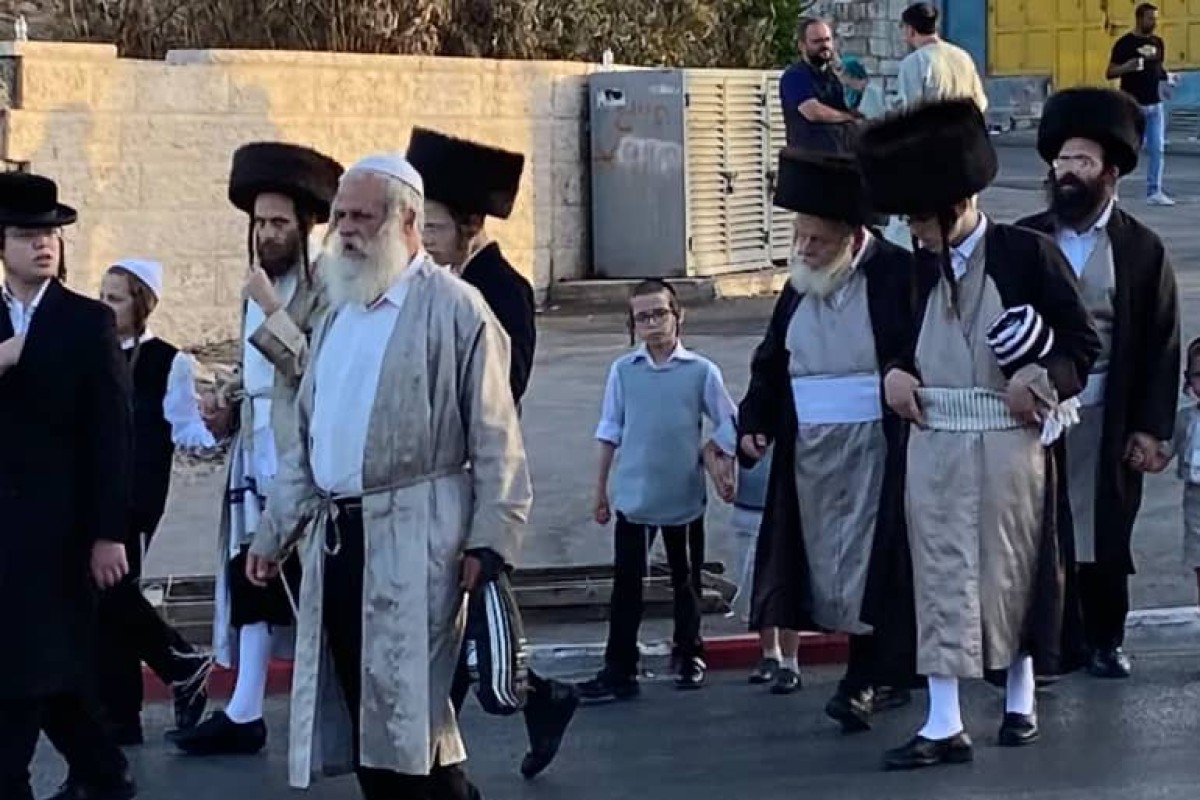The Haredi community...the other war inside Israel


Israeli writer Anshel Pfeffer reported that there is a real conflict taking place within the ultra-Orthodox Jews at the level of local authorities, where their parties’ eagerness to win every electoral seat indicates the weakening of the influence of the rabbis and the rebellion of the Haredi youth against their leadership.
Feffer said in an article in the newspaper "Haaretz" entitled "The real war within the camp of the ultra-religious is not taking place in the Supreme Court, but at the level of local authorities." The Supreme Court discussed two issues concerning the Haredim, namely the continued financing of its religious schools with tax money, and the rejection of the Prime Minister's government. Prime Minister Benjamin Netanyahu recruited 66,000 of its students.
Feffer described the court's deliberations as a one-sided discussion between judges and prosecutors, all of whom are from a social segment that performs military service, and who are discussing how to deal with a group that does not want to bear the burdens of common security.
He added that the bloody war in Gaza does not seem to concern the Haredim, but this population group is happy to mobilize for local elections and finds in itself, and beyond all segments of the population, sufficient enthusiasm to compete for the position of mayor or municipal council membership.
Collapse
He said that wars are being fought within the Haredi community to control cities where members of this segment are concentrated, such as Bnei Brak and Ain Shams, and that the enthusiasm for competition for every seat in their local councils does not only indicate this community’s dependence on the state’s budget and its local functions (financed by taxes), but also It also led to the collapse of its leadership hierarchy and the disappearance of the influence of the ancient rabbis who were unable to control the hawks among the businessmen and to agree among themselves.
According to Pfeiffer, the matter is no longer limited to the traditional conflict between the components of religious Jews (between the Lithuanians and the Sephardim, for example), but rather it has extended to divisions within a single component. He said that 10 years after the death of Rabbi Ovadia Yosef, there is no longer a single authority within the Haredi community. The control of the rabbis over hundreds of thousands of young people in this group is weakening.
Although Haredi businessmen are still cooperating at the national level to ensure the flow of necessary funding and continued exemption from the army, the effects of the bloody war between them locally are permeating to higher levels, and indicate what will happen in the future when they are no longer able to hide behind Netanyahu.
Parallel world
Feffer accused the Haredi community of living in a parallel world devoid of war, dead and wounded, and months of long military service, and where the state is devoid of all authority and is nothing more than a source of funding and managing elections. He said that Netanyahu is not the only one who insists on a deceptive settlement with this situation. The group, but also War Council Minister Benny Gantz.
Feffer points to growing anger within the Haredim over the behavior of its businessmen and the weakness of the rabbis warring among themselves. He said that there is an understanding of the discontent of the rest of (secular) society at this group’s evasion of paying the necessary burdens, but the Haredi leadership is nevertheless determined to ignore this anger. .
The Haredim represent about 14% of Israel's population, and their influence has increased in recent years after their parties became an important partner in Netanyahu's government, but the war on Gaza has fueled debate about whether their children participate sufficiently in bearing the burdens of the state, especially in light of The Netanyahu government's tendency to extend the law exempting them from conscription.